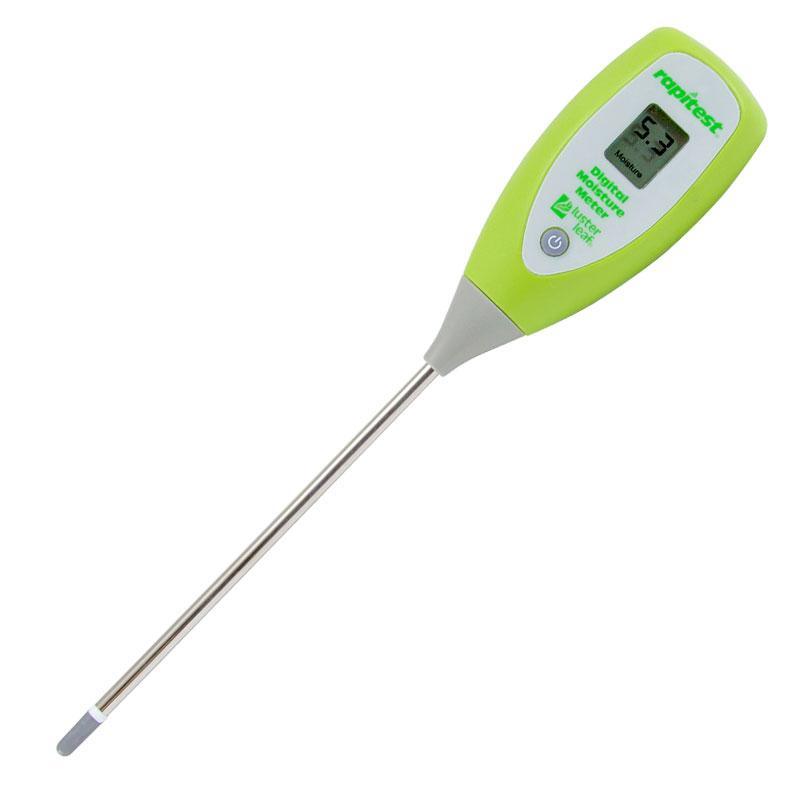The Ultimate Guide to Dampness Meters: A Comprehensive Overview and How They Can Conserve You Cash
Dampness meters serve as vital devices in finding and monitoring moisture material in materials, helping in stopping expensive problems and ensuring the top quality of products. Understanding the nuances of various types of moisture meters, their applications, and the potential cost-saving advantages they supply can be a game-changer for organizations and experts alike.
Sorts Of Dampness Meters
One common kind is the pin-type moisture meter, which gauges the electric resistance between two pins put into a product. Pinless wetness meters, on the various other hand, use electromagnetic sensing unit plates to check a larger location without creating damage to the product's surface.

Infrared wetness meters gauge the thermal residential or commercial properties of a material to establish its dampness web content non-invasively, making them helpful for applications where pin or pinless meters may not be appropriate. Recognizing the different types of moisture meters available can assist markets select the most suitable tool for their specific wetness measurement demands.

Advantages of Utilizing Dampness Meters
Dampness meters offer indispensable benefits in accurately keeping track of and evaluating dampness levels in varied materials and settings. One of the key advantages of using wetness meters is the prevention of possible damage triggered by excess wetness.
In addition, using wetness meters can lead to raised power performance. In agricultural setups, dampness meters play a crucial role in optimizing crop returns by enabling farmers to keep track of soil moisture degrees and make educated watering decisions.
How to Select the Right Dampness Meter
Selecting the appropriate wetness meter entails thinking about vital variables such as material compatibility, measurement variety, and calibration accuracy. When choosing a wetness meter, it's vital to make sure that the meter is suitable for the particular product you will be testing. Different products have varying electric residential properties that can impact moisture analyses, so picking a meter designed for your material is essential for accurate outcomes. Furthermore, think about the measurement series of the moisture meter. Ensure that the meter can find wetness levels within the variety required for your applications. Calibration accuracy is an additional crucial element to remember. Go with a dampness meter with trusted calibration to make certain exact and consistent analyses. Some meters may need regular calibration changes, so comprehending the calibration procedure is very important. By carefully assessing these aspects, you can select a dampness meter that fulfills your requirements and gives precise dampness dimensions for your jobs.
Correct Techniques for Wetness Meter Usage

Cost Financial Savings Through Moisture Meter Applications
How can the critical utilization of dampness meters lead to considerable cost savings throughout different markets? In the farming sector, dampness meters help in determining the ideal time for collecting crops, stopping excess or over-drying wetness that can impact the last product's high quality.
Similarly, in building and construction, wetness meters assist avoid costly problems by detecting wetness degrees in structure materials, such as timber or concrete, which can lead to structural issues if not addressed immediately. By determining issue locations early, specialists can take rehabilitative steps to avoid comprehensive repair work or substitutes, ultimately conserving time and cash.
In addition, in the food processing sector, wetness meters are important for checking item top quality and guaranteeing conformity with safety and security guidelines. By precisely determining wetness material in food products, producers can prevent wasting, maintain freshness, and minimize waste, resulting in considerable Find Out More expense savings. On the whole, the critical application of dampness meters is a valuable financial investment that can result in substantial expense decreases and boosted performance across different markets.
Final Thought
In conclusion, moisture meters are important tools for determining and detecting dampness degrees in various products. By using the appropriate wetness meter and complying with correct methods, customers can properly avoid pricey damages created by excess wetness.
Dampness meters offer as crucial devices in identifying and monitoring moisture web content in materials, aiding in preventing expensive problems and making certain the top quality of products. Infrared dampness meters gauge the thermal buildings of a material to determine its moisture content non-invasively, making them beneficial for applications where pin or pinless meters might not be appropriate.Moisture meters use very useful advantages in accurately checking and examining wetness degrees in diverse materials and environments. In farming setups, moisture meters play a crucial role in optimizing plant returns by allowing farmers to keep an eye on soil dampness visit levels and make informed irrigation choices.In conclusion, wetness meters are valuable tools for finding and gauging wetness levels in different products.